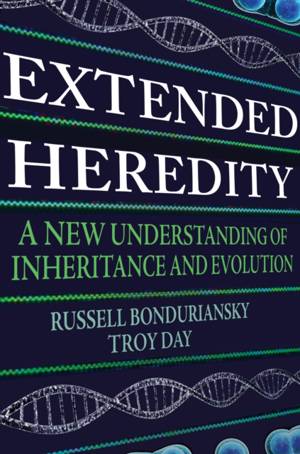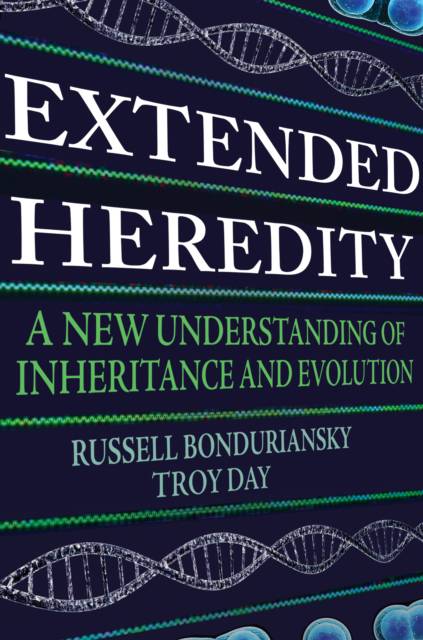
Vous voulez être sûr que vos cadeaux seront sous le sapin de Noël à temps? Nos magasins vous accueillent à bras ouverts. La plupart de nos magasins sont ouverts également les dimanches, vous pouvez vérifier les heures d'ouvertures sur notre site.
- Retrait gratuit dans votre magasin Club
- 7.000.000 titres dans notre catalogue
- Payer en toute sécurité
- Toujours un magasin près de chez vous
Vous voulez être sûr que vos cadeaux seront sous le sapin de Noël à temps? Nos magasins vous accueillent à bras ouverts. La plupart de nos magasins sont ouverts également les dimanches, vous pouvez vérifier les heures d'ouvertures sur notre site.
- Retrait gratuit dans votre magasin Club
- 7.000.0000 titres dans notre catalogue
- Payer en toute sécurité
- Toujours un magasin près de chez vous
Extended Heredity
A New Understanding of Inheritance and Evolution
Russell Bonduriansky, Troy Day
Livre relié | Anglais
34,95 €
+ 69 points
Format
Description
How genes are not the only basis of heredity--and what this means for evolution, human life, and disease
For much of the twentieth century it was assumed that genes alone mediate the transmission of biological information across generations and provide the raw material for natural selection. In Extended Heredity, leading evolutionary biologists Russell Bonduriansky and Troy Day challenge this premise. Drawing on the latest research, they demonstrate that what happens during our lifetimes--and even our grandparents' and great-grandparents' lifetimes--can influence the features of our descendants. On the basis of these discoveries, Bonduriansky and Day develop an extended concept of heredity that upends ideas about how traits can and cannot be transmitted across generations. By examining the history of the gene-centered view in modern biology and reassessing fundamental tenets of evolutionary theory, Bonduriansky and Day show that nongenetic inheritance--involving epigenetic, environmental, behavioral, and cultural factors--could play an important role in evolution. The discovery of nongenetic inheritance therefore has major implications for key questions in evolutionary biology, as well as human health. Extended Heredity reappraises long-held ideas and opens the door to a new understanding of inheritance and evolution.Spécifications
Parties prenantes
- Auteur(s) :
- Editeur:
Contenu
- Nombre de pages :
- 280
- Langue:
- Anglais
Caractéristiques
- EAN:
- 9780691157672
- Date de parution :
- 10-04-18
- Format:
- Livre relié
- Format numérique:
- Genaaid
- Dimensions :
- 163 mm x 239 mm
- Poids :
- 635 g







